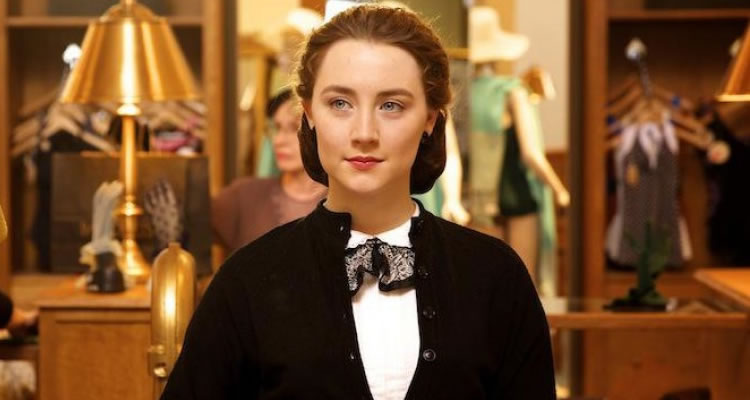Cork born John Crowley made his name with 2003’s ‘Intermission’ starring Colin Farrell, before turning his eye to the gentler side of life with ‘Is Anybody There?’. This month see’s the release of his latest project, ‘Brooklyn’ based on the classic novel by Colm Toibin. The film has already earned rave reviews all over the globe and lead actress Saoirse Ronan is tipped to pick up an Oscar nomination for her role as Eilis a young Irish girl who has to choose between two men and two countries. We caught up with John Crowley on his recent trip home to Dublin, to find out more about this coming of age drama.
What made you want to direct Colm Toibin’s classic novel?
I think it’s a profoundly moving story, but I think that the thing that informed my reasons behind making it is, I think it’s a really important story for Ireland, and one that I don’t know has been told in this form. There are plenty of versions of the Irish American story, but it’s a really really important story so it was amazing to get a chance at telling that story, and a huge responsibility to try and get it right.
Had you read the book before you were involved with the film?
I had, for pleasure, and I found out shortly afterwards that there was a film being developed, but someone else was going to do it, so I had to wait for a long time before it came my way. If it had come my way all those years ago Saoirse [Ronan] would have been too young. When it finally came my way Saoirse was the first choice for it, and she was the exact right age. So that was a very particular piece of timing.
‘Brooklyn’ is so different to your last film set in Ireland – ‘Intermission’ – did this feel like a big change for you?
I always think that the style of a piece of work is organic to the nature of the material. That’s not necessarily a very fashionable idea; you’re meant to be an auteur and you’re meant to have a signature style that you spray on to everything that comes into your grasp, and that’s fine; there are people who can do that and do that very well. It doesn’t interest me particularly well. What interested me in this was whether we could make a film that was emotional, really emotional. Not sentimental and not one that just squeezes tears out of people in an easy way, but that has really got a proper depth of emotion of the complication of people just trying to deal with their lives.
Although it’s set in the 1950s, the film feels very relevant today with so many Irish people emigrating to Australia and other countries. Was that something that occurred to you when you were making the film?
Yes, no question. Emigration has been, in lots of ways, one of the defining facts of Irish life since the 1850s. There are very very few households in the country that haven’t had some contact – mostly very direct contact – with emigration. It’s a story that in a way, we all feel like we know, and there are hundreds and thousands of versions of that story, but to try and do this version of the story in this particular time and place, it felt like it actually hadn’t been told.
It’s interesting that Nick Hornby, who is an English writer, wrote the screenplay for the adaptation from an Irish novel, and captured the Irish sense of humour, and the seeming permanent mix between happiness and sadness. Was this something that surprised you?
We call him Mick Hornby now! [laughs] He’s an honorary Irishman! I was blown away by it. I was sent the screenplay that he had done; he’s particularly good at writing young women in screenplays, but you’re right… Who knew!? When Colm Toibín read his screenplay he had two tiny notes; we say ‘Mammy’ instead of ‘Mummy’, and it’s not ‘rashers of bacon’, people just say ‘rashers’. Other than that he said ‘Thank you very much for your screenplay, it’s great’ and that was it! It was that simple! It’s impressive that [Nick Hornby] was able to write in a way that would sit in Irish mouths, but then also in American.
Emory Cohen gives a wonderful performance as Tony. You seem to have this talent for finding young male actors and giving them their breakout roles… Colin Farrell in ‘Intermission’, Andrew Garfield in ‘Boy A’…
I wouldn’t claim any of them, they had all done great work before I worked with them, and did great work afterwards. With Emory in this, you needed someone who was believably a plumber; a 1950s, not very well educated plumber in Brooklyn. Emory is physical, he looks like he could handle an S bend, and yet he’s got this hidden gentleness in him, and that’s not a combination that’s all that easy to come by in young actors. I think a lot’s going to happen for Emory because he’s very gifted, and he deserves it.
BROOKLYN is at cinemas from Nov 6th
Words: Brogen Hayes


